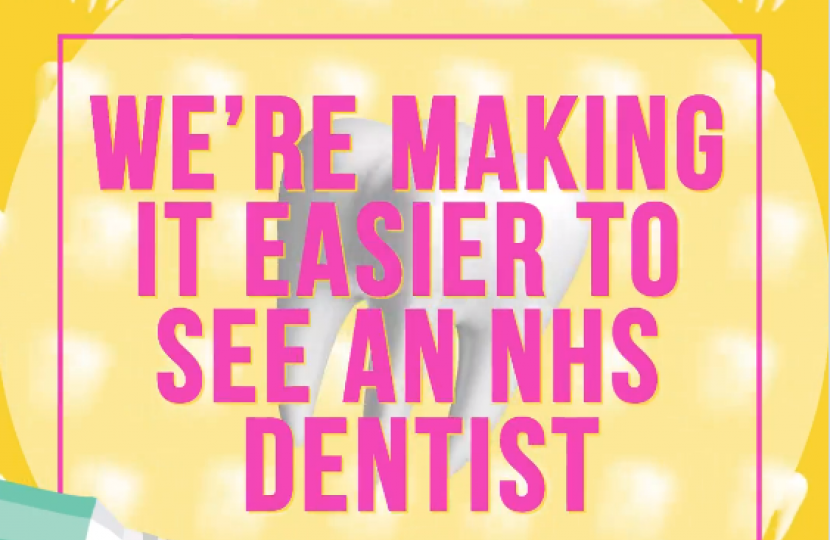
Patients will benefit from millions more NHS dental appointments over the next year, thanks to a major new plan to ensure easier and faster access to NHS dental care across England.
The Government's plan to recover and reform NHS dentistry will deliver 2.5 million additional NHS dental appointments for patients over the next 12 months, including 1.5 million extra treatments - making NHS dental care faster, simpler, and fairer for patients and staff.
The recovery plan is built on three key pillars, outlined below.
Making sure everyone who needs to can see a dentist
Our plan includes measures to support dentists take on new NHS patients to make sure everyone who needs to see a dentist, particularly those who have been unable to access care in the past two years, will be able to do so, making access to care faster and fairer.
NHS dentists will be offered a ‘new patient’ payment of £15 for every check-up they perform on NHS patients who haven’t been seen over the past two years and £50 for every new NHS patient they treat who hasn’t been seen over the same period.
We're also increasing the minimum payment dentists receive for delivering NHS treatments by 22% (from £23 to £28), making NHS work more attractive to dental teams.
To attract new NHS dentists and improve access to care in areas with the highest demand, around 240 dentists will be offered one-off 'golden hello' payments of up to £20,000 for working in under-served areas for up to three years.
We will deliver care to more isolated, rural and coastal areas by launching ‘dental vans’ to help reach remote regions without delay. Staffed by NHS dentists, they will offer check-ups and simple treatments like fillings. This model has been a tried and tested success across many regions, such as in Cornwall, where a mobile van visited five harbours, and treated more than 100 fishermen and their families.
The public will also be able to see which practices in their local area are accepting new patients on the NHS website and the NHS App. To promote the increased availability of appointments, we will also roll out a marketing campaign encouraging anyone who has not been seen by a dentist for the past two years to access treatment.
These measures will empower NHS dentists to treat more than a million more people and deliver 2.5 million more appointments.
By 2031, training places for dentists will increase by 40% and places for dental hygienists and therapists, who can perform simple treatments like fillings, will also rise by 40%. This will build a pipeline of new dental care professionals that will provide more care for NHS patients.
Our plan also includes new measures to attract dentists to work in the NHS, including:
- supporting more graduate dentists to work in NHS care. This spring, we will consult on whether dentists should be required to work in the NHS for a period upon completion of their training - known as a 'tie in'
- taking full advantage of our dental professionals’ skills, for example by allowing trained dental therapists to administer antibiotics
- making it easier and simpler for NHS practices to recruit dentists from overseas by reducing bureaucracy
These measures will help deliver more NHS care and better value for taxpayers, while making life simpler for dentists and making care faster for patients.
Prevention and early years
This Government is keen to embed good oral health habits at an earlier stage, given the evidence that doing so later, for example through supervised toothbrushing programmes in later school years, will have less impact on outcomes but add administrative burdens to primary school teachers.
Our plan therefore drives a major new focus on prevention and good oral health in young children and deliver an expanded dental workforce.
We will roll out a new ‘Smile For Life’ programme, which will see parents and parents-to-be offered advice for baby gums and milk teeth, with the aim that by the time children go to school, every child will see tooth brushing as a normal part of their day.
We will deploy mobile dental teams to schools in areas with a shortage of NHS dentists, which will apply preventative fluoride varnish to more than 165,000 reception age children’s teeth – strengthening them early and preventing decay.


